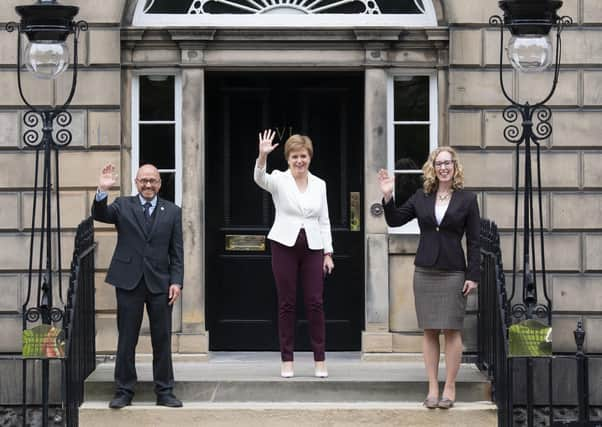Policies like Brexit are defining moments


Politicians are often deliberately vague about timescales and targets. This prevents them being held to account, but denies people the opportunity to know whether ideas stood the test of real world outcomes.
There are many examples here of big ideas that lacked objective performance measures. We have had rural proofing and a rural white paper, but the position of rural communities across Northern Ireland has steadily worsened. Politicians will claim that without them it would have been even worse, but that is a weak argument that does not fit the facts. Bovine TB over decades has been a massive and expensive failure; agri-environment schemes created more red tape than positive outcomes for wildlife.
Advertisement
Advertisement
Pull the focus out from Northern Ireland and the CAP is soon in the firing line. For years it has been assumed, particularly in the UK, that this was a failure as a policy. That is created surpluses from poor controls at the outset is beyond question, but since the MacSharry reforms in the early 1990s it did successfully guarantee farmers the income stability they need. The key question now is whether its replacement in the UK will be better and whether lessons will be learned from the failures of the CAP. Certainly the plans for England do not look promising for farmers and they are unlikely to offer the long term income security of the CAP. For Scotland the unknown in policy decisions will be the influence of the Greens now they are part of the government. Above all for both Edinburgh and Belfast an even bigger question is how much independence in decision making devolution will allow.
This is all part of the big debate as to whether Brexit can deliver better outcomes. Here that is further complicated by the protocol. Far from remaining in the UK and the single market delivering the best of both worlds for Northern Ireland the protocol has delivered the worst possible outcome. This is because the government opted for the fallout from a border down the Irish Sea to the alternative of accepting equivalence with EU food standards. Its decision to prioritise sovereignty over all else has created an impossible position here and without significant movement at Westminster, and to a lesser degree in Brussels, it will not be resolved.
Policies like Brexit are about positive or negative defining moments and to date the protocol is one of the huge negatives. There are others, not least the loss of political power for the farming lobby that came via the strength of the European farming lobby. It secured many pro-farmer policies from Brussels that the UK had to implement. That link has now gone and it is becoming more clear that the government at Westminster has little or no interest in agriculture or farmers. Also off the agenda is the concept of there being a fortress level of protection from imports. This is a big strength of the EU, but the UK wants to go down a free trading route that will open the market to food imports. It believes this will buy trade deals and force others to see the UK as a champion of free trade principles. The EU is pursuing the same trade deals, but only within the fortress concept, relying instead on its offer of a market of 500 million consumers.
This implies the defining outcomes of Brexit are all negative, but that is not necessarily the case. Technology is one big area where the UK could usefully pull away from the EU and allow Brexit to deliver for agriculture. This is about breaking away from policies that have allowed the views of a minority of member states force the EU into a negative stance towards science. This is evident in its blanket opposition to genetically modified (GM) food. That is a stance that will not change quickly in Brussels or London, but Brexit could deliver a change of approach to gene editing. This is different to GM because it effectively only accelerates changes to the genome that would be achieved slowly through conventional breeding.
Advertisement
Advertisement
This offers the UK a real opportunity to embrace ‘good’ science to make agriculture more productive and greener. For years the EU has been weighed down by its obsession with the precautionary principle towards science, but now the UK can forge a different future. That would be a a long term positive defining outcome from Brexit.